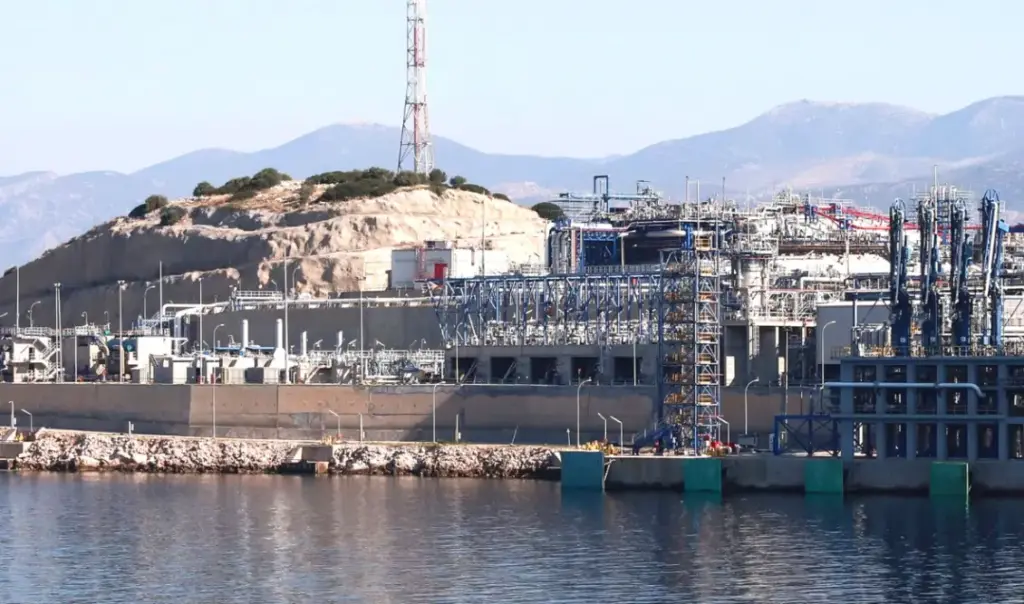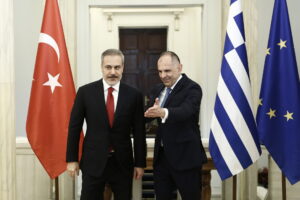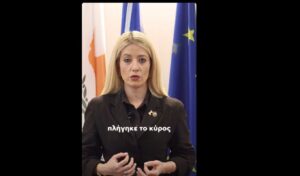“Stop purchasing Russian energy” was the message from J.D. Vance and Marco Rubio to Hakan Fidan during his White House visit. The two powerful White House officials, the Vice President and Secretary of State Marco Rubio, reiterated to Turkish Foreign Minister Hakan Fidan the clear position of the United States and President Donald Trump that his country must stop purchasing Russian energy.
American pressure on Ankara comes as Greece strengthens its energy role, upgrading its geostrategic position, as reflected in statements by American ministers expressing gratitude for Greece’s position in transporting LNG from the US to Europe. In this direction, Prime Minister Kyriakos Mitsotakis visited the new gas compression station in Komotini, which will support gas exports through Greece to Europe. “Greece and Thrace specifically are transforming into an international energy hub and our homeland has proven in practice that it can exercise very effective energy diplomacy, always for the benefit of national interests,” Mr. Mitsotakis emphasized.
Russian energy: Europe’s independence and Greece’s role
It’s worth noting that from January 1, 2026 until December 31, 2027, Europe will gradually zero out Russian gas imports.
Energy Minister Stavros Papastavrou will seek assurances that this decision will be safeguarded in practice. “Energy opens the way for everything, but for energy to happen, Russian natural gas must be excluded, so the Turks must not bring Russian natural gas and there we must cooperate with the European Union. We’re going to Europe tomorrow to see how it will be confirmed that this won’t happen,” noted the Energy Minister.
Alongside the revival of the 3+1 agreement, Wednesday’s meeting of the Energy Commissioner and Energy Ministers of Greece and Cyprus is expected to explore next steps for advancing the electrical interconnection project.
US messages
The United States sent – just days ago – messages of cooperation and realism, calling on Europe to move “based on mathematics” to ensure cheap, abundant and reliable energy. US Energy Secretary Chris Wright and Interior Secretary Doug Burgum emphasized the need for targeted investments in networks and infrastructure that will enhance energy system stability, ensure adequacy and reduce costs for end consumers. Their message was clear: energy security is not an abstract political goal, but the foundation of economic development and social cohesion. “Energy security matters; cost matters; and where you get your energy matters,” Chris Wright emphasized, adding that “cheap and abundant energy creates tremendous economic opportunities and improves people’s lives.”
Greece’s role in the American LNG plan
The second US message concerned the new era without Russian gas in Europe, where Greece holds a central position. Burgum and Wright highlighted the presence of investors in the country and projects worth tens of billions of dollars currently underway. “By increasing volume, price decreases,” Burgum noted, summarizing the logic of the American approach: more production, lower costs, mutual benefit. For Washington, Greece represents a reliable ally connecting transatlantic energy policy with investments and security. It’s not just a gateway for LNG to the Balkans and Central Europe, but also a partner with critical infrastructure, global maritime capacity and stability. “Energy security matters; where you get your energy matters,” Wright repeated, characterizing Greece as a country that “invests in stability and offers solutions.”




